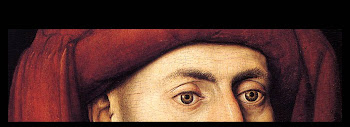 Charles Sanders Pierce began a philosophical movement in the late 1800's he called philosophical pragmatism. At the time, he quipped that he adopted the least attractive name possible in order to forestall others from stealing his ideas. In all, it turned out to be a rather robust theory, or set of theories, and continues to have vitality to this day.
Charles Sanders Pierce began a philosophical movement in the late 1800's he called philosophical pragmatism. At the time, he quipped that he adopted the least attractive name possible in order to forestall others from stealing his ideas. In all, it turned out to be a rather robust theory, or set of theories, and continues to have vitality to this day. The point of philosophical pragmatism is NOT some Machiavellian "situational ethics" as the name might imply (not that there's anything wrong with that!). Rather, the point is that any philosophy of the mind, of knowing, of science or of ultimate truth would be grounded in experience, combined together with our theories, and not somehow separate from experience in a classical a priori-type world.Part of the idea is to realize that the utility of ideas somehow matters--consequences matter and current theories and assumptions are a part of the mix. Being a philosophical pragmatist is one part philosophical archaeologist. You are understanding what has been known, as well as looking around you trying to figure out what truth is.
What does it matter? Well, it matters on all sorts of levels, but I think it applies to our career advancement most particularly. In all the talk about "fit" and "firm culture", there is much emphasis put on self-evaluation and self-analysis. Part of what constitutes our "selves" is as much our prior beliefs about our performance, as well as what is actually "true" about our abilities--get it? We have to delve into the history of our own belief-systems to get down to "facts" and "observations" that can awaken us and take us on to the next level.
If we can really take into account all of our prior beliefs and current observations into account, and review them continuously over time, we can begin to participate in "creating" truth as the pragmatists say. Their favorite analogy? The carpenter builds a chair, but he does not create it from nothing. In the same way, the truth about ourselves is "out there", beyond our capacity (in some degree) to control. However, we can take parts of that created tree and saw and bend and join until we find something of utility and beauty.
Think about it.
